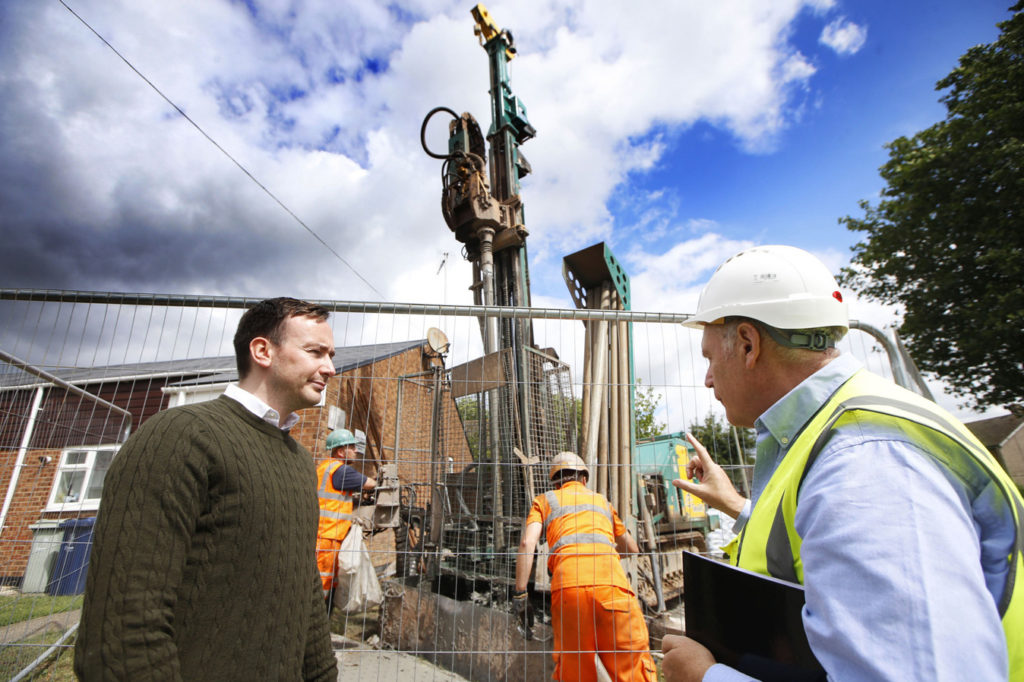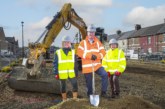 Nicholas Harris, Chief Executive at leading housing provider Stonewater, discusses Levelling Up: The ambitious blueprint centred around empowering communities.
Nicholas Harris, Chief Executive at leading housing provider Stonewater, discusses Levelling Up: The ambitious blueprint centred around empowering communities.
The levelling up agenda was a core component of the Conservative party’s manifesto in the 2019 general election but until last month, there was little clarity on how exactly regional disparities will be tackled. Ambitious in its scope and aims, the long-anticipated Levelling Up White Paper (LUWP) sets out 12 national missions that provide a clear vision for how the Government intends to enable more people to access opportunities that will support them and their communities to flourish.
While there is no denying that the LUWP provides hope — for those living in parts of the country that have for decades felt forgotten about — but what actions are taken next, will be critical. Delivering on the missions and achieving tangible change over the next eight years will require collaboration and an equally ambitious plan in place, sooner rather than later.
In the same week the LUWP was published, a new Housing Minister was appointed — the 20th MP to hold the role since 1997 — but more importantly, rising energy costs dominated the headlines.
Financial hardship
These announcements were shortly followed with news that January inflation hit a 30-year high of 5.5%, resulting in the highest cost of living increase for 60 years — hitting those on the lowest or fixed incomes the hardest.
In a first world country, having 3.16 million people (around 13.2% of households) estimated as living in fuel poverty in 2020 is simply unacceptable. Figures report that this was a 0.2% decrease from the year prior but do not necessarily reflect the stark reality and financial hardship many individuals and families are currently facing, following the ongoing repercussions of the Covid-19 pandemic.
With many more at risk of being stuck in the cycle of fuel poverty, the call for levelling up couldn’t be louder and it’s important that as a sector we ensure the provision of good-quality and energy-efficient housing remains at the heart of the agenda.
Ending fuel poverty can only be achieved if we tackle the root causes of poverty on one hand and improve the energy efficiency of our homes on the other. This is particularly important given that the Government’s latest figures show up to 3.9 million people live in social housing and these homes account for around 15% of the UK’s total greenhouse gas emissions.

Decarbonising homes
In 2020, we commissioned research from the IPPR which mapped out a new ‘Home Improvement Plan’, a comprehensive strategy to deliver, at scale, the energy efficiency and low-carbon heating measures needed to reduce energy demand and emissions. The plan proposed how we can tackle fuel poverty and create employment opportunities — true levelling up.
Since this report, we’ve worked on several innovative pilot projects aimed at decarbonising our existing homes. This has included having air source heat pumps installed in 60 homes at our Blackbird Leys scheme, as part of Energy Superhub Oxford, a world-first project showcasing an integrated approach to decarbonising power, heat and transport across the city.
Foundations to thrive
Everyone should have the opportunity to have an affordable home where they can live, raise a family and if needed, work.
While safe and comfortable homes provide the foundation for people to take advantage of the prosperous opportunities the LUWP seeks to deliver, only one mission (section 9) largely focuses on housing delivery. And somewhat disappointingly, doesn’t disclose anything new especially not on the funding front.
The Government’s target of delivering 300,000 new homes a year remains, along with policies around First Homes and the end to Section 106 and its replacement with the Infrastructure Levy — as outlined in the Planning White Paper a few years ago. It’s encouraging to see the commitment to building more genuinely affordable homes, but the devil lies in the detail and the comprehensive plan of how exactly these missions of intent will be brought to fruition — particularly with regards to housing — are yet to come.
Regeneration
With that said, the heightened focus on regeneration to enhance town centres across England is a focal step for reinvigorating communities. But most importantly, this should be centred around those in greatest need.
The overall consensus is that the levelling up agenda remains centred around tackling the persistent inequalities in the Midlands and North of England. While there is no contesting that these regions are long in need of support and investment, many coastal and rural areas feature some of the highest levels of deprivation and should not be left behind. To address this, we support the extension to Homes England’s remit to lead on regional growth and development. As one of their long-term strategic partners, we’ll do what we can to deliver much-needed regeneration and provide affordable homes to those that need them most.
This approach coupled with plans to expand mayoral devolution — giving more powers to regional combined authorities — offers the potential for policies and initiatives that more clearly reflect local housing priorities.
As the white paper shows, there are many elements and wide-ranging issues to be addressed in levelling up. From quality of life, health and pride of place, there is a key role for housing providers to further support the Government’s plans to transform people’s lives. Much of which, many operating across the sector already strive to do.
Header image Stonewater’s Blackbird Leys scheme is part of Energy Superhub Oxford.









